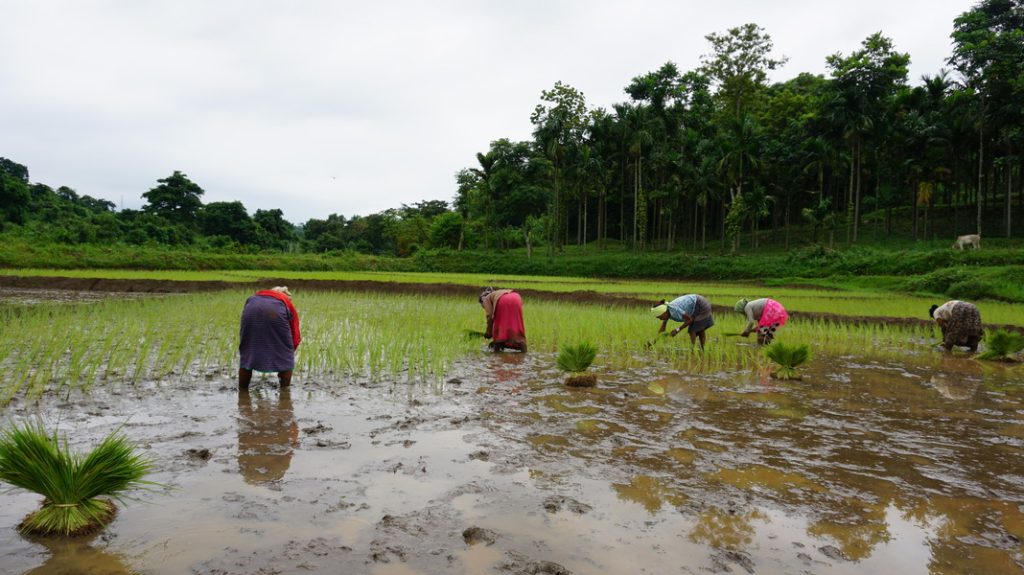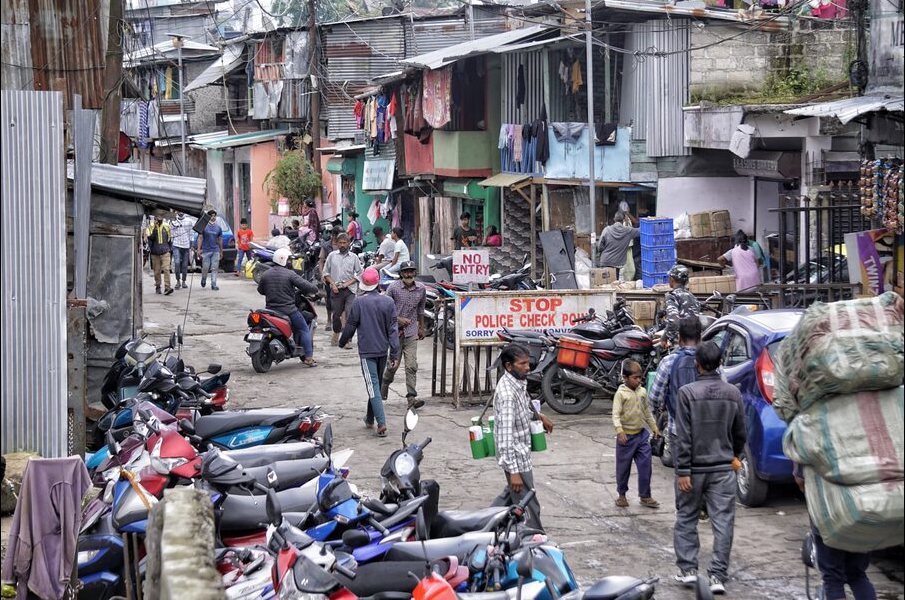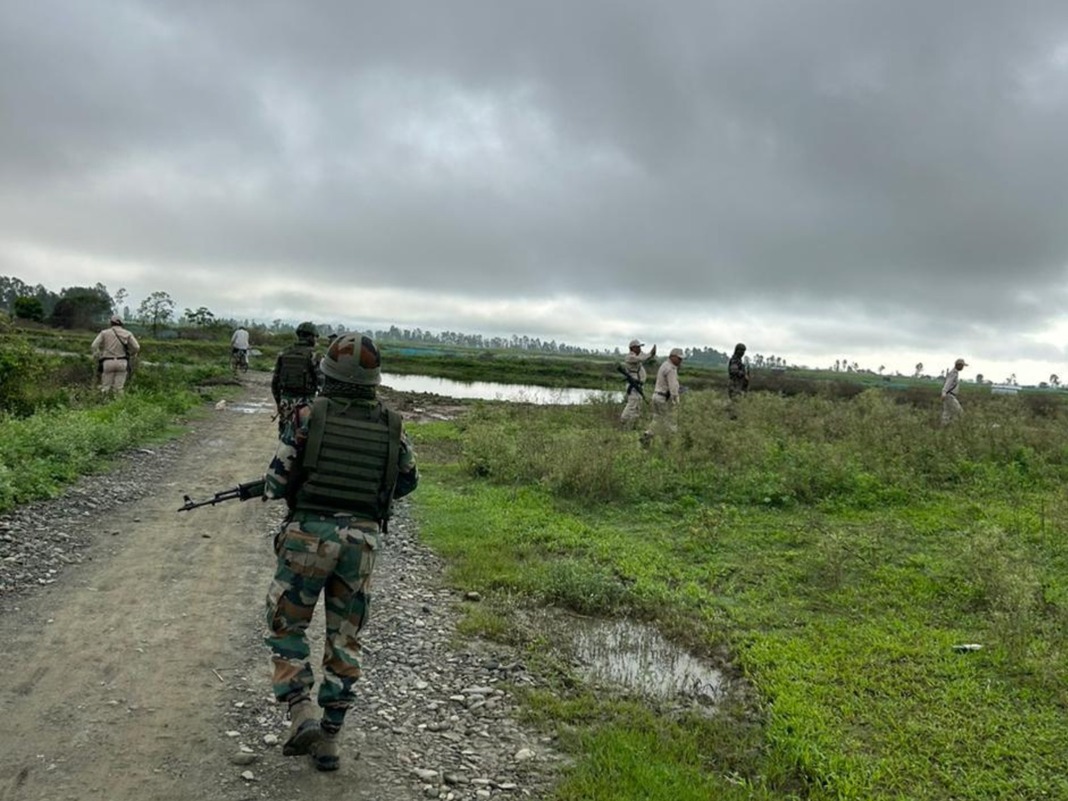Shillong, Oct 31: It was an event with a diverse assembly of delegates from Rome, Indonesia, Myanmar, and Meghalaya, all converging to explore an ageless wisdom—the indigenous food systems that nurtured their people and preserved the Earth.
The Indigenous Partnership for Agrobiodiversity and Food Sovereignty (TIP) with support of The Pgakenyaw Association for Sustainable Development (PASD) and the Stockholm Environment Institute (SEI), Asia Office organised a sharing event on the October 28 at the Mekong Room of SEI, Asia in Bangkok.
Representing the heart and heritage of Meghalaya, Richard Ranee, a custodian farmer from Nongtraw village in the East Khasi Hills, shared his story of resilience, tradition, and nature at the meeting in Bangkok. Ranee’s village, accessible only by a steep descent of 4,000 steps, lies deep in the hills of North East India, where generations of Khasi farmers have sustained their communities through shifting cultivation and local biodiversity.
At the gathering organised by the Indigenous Partnership for Agrobiodiversity and Food Sovereignty (TIP), Ranee highlighted the unique ways how his community balances food production with environmental care. “Our forest is our pantry and our pharmacy,” he shared, explaining how villagers rely on native medicinal plants and wild edibles for both nutrition and healing. This system, known locally as jhum, has become a symbol of sustainable food practices, rooted in deep respect for the land and its resources.
Central to the success of Nongtraw’s traditional system is the essential role of women, who oversee the sustainable use of land and resources. Women in the community ensure that no single household exploits more than its fair share, maintaining a system that preserves biodiversity and provides for everyone. “Our women are the true guardians,” said Ranee. “They protect the land and ensure that it provides for each family in our village.”
Ranee’s presentation served as a powerful example of how indigenous food systems like those of Meghalaya hold answers to global challenges.
The meeting was preceded by a visit of the visitors from Rome, Indonesia, Myanmar, Meghalaya, to Huay E Kang, a Karen village where TIP and PASD conducted the agroecological assessment of the community’s food system. PASD also organised on October 26-27, a ROTATE Festival at Museum Siam where 7 of the Karen communities displayed their food and culture and gave an Elder and a woman Leader to share their views of their food systems through a talk session moderated by a local Thai TV presenter.
Phrang Roy, TIP Coordinator, said that as the world is increasingly looking towards a nature positive food systems, the food systems of Indigenous Peoples can provide unique templates of solutions to benefit people, nature and climate resilience.
Dr Prasert Trakansuphakon, of PASD praised the role of indigenous women who have led the initiative of safeguarding Indigenous Food Systems. He agreed with the important role that indigenous communities play in safeguarding global biodiversity and the need that this claim is backed up by data.

Niall O’Conner of the Stockholm Environment Institute (SEI) of Asia said the knowledge of sustainability can be shared and scaled globally without coming at the cost of exploiting indigenous communities.
Gratia Dkhar, International Tool for Agroecology Performance Evaluation (TAPE) Coordinator from North East Society for Agroecology Support advocated the need to scale such templates of solution offered by Indigenous Peoples and pleaded for policy frameworks that ensure sustainability of these systems while also protecting community rights, and their access to resources.
“There is an urgent need to promote the interface between local knowledge and scientific knowledge and policies, and we hope and look forward to building partnerships to put these into actions,” she implored to the delegates in her conclusion.
Dr Dhrupad Choudhury, Ecologist, Indigenous Food Systems Expert and TIP Advisor said that as Indigenous Peoples Food systems protect biodiversity they at the same time provide opportunities for enhancing food security, improving nutrition through the diversity that is available in their systems which also provide green livelihood opportunities and build resilience to climate through the systems of reverence and nurturing of nature.
Two Karen elders of Hin Lad Nai and Nong Tao villages, Northern Thailand, Father Luang Chaiprasit Poka and Siwakorn Odochow shared that for the Karen people, forests and people are interrelated and not two different entities. They cited this connection as one of the main reasons why their communities were able to withstand the Covid-19 pandemic without any shortage of food.
Dr. Aditya Gangadaran of The Nature Conservancy shared the idea of supporting tangible livelihood benefits that can come from the sustainable use of biodiversity through conservation-aligned livelihoods.
The event underscored the power of indigenous knowledge in building sustainable, resilient food systems that protect biodiversity and honour cultural heritage.




